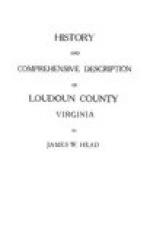However strictly it might be abstained from at other times, a harvest without whisky was like a dance without a fiddle. It was partaken of by all—each one, male and female, drinking from the bottle and passing it to his or her nearest neighbor. Drinking vessels were dispensed with as mere idle superfluities.
Dinner over, the company scattered, the elders withdrawing in a body and seating or stretching themselves upon the ground.
After the filling and lighting of the inevitable pipe, conversation would become general. The news of the day—not always, as may be imagined, very recent—was commented upon, and then, as now, political questions were sagely and earnestly discussed. Stories, mainly of adventure, were told; hairbreadth escapes from Indian massacre recounted and the battles of late wars fought again beneath the spreading branches of the trees. Meanwhile, the boys and girls wandered off in separate and smaller groups, singing and playing and making love much in the manner of today.
Another amusement of those days, and one that did not fall into disfavor for many years thereafter, was what was known as “shucking bees.” To these gatherings were invited both old and young. Stacks of corn in the husk were piled upon the ground near the crib where the golden ears were finally to be stored. Upon the assemblage of the guests, those with proud records as corn-huskers were appointed leaders, they in turn filling the ranks of their respective parties by selection from the company present, the choice going to each in rotation. The corn was divided into approximately equal piles, one of which was assigned to each party. The contest was then begun with much gusto and the party first shucking its allotment declared the winner. The lucky finder of a red ear was entitled to a kiss from the girls.
Supper always followed this exciting contest and after supper came the dance. Stripped of dishes, the tables were quickly drawn aside and the room swept by eager hands. Then came the struggle for partners and the strife to be “first on the floor.” Usually the violin furnished the only music and the figures most in favor were the reel and the jig, in which all participated with a zest and abandon unknown to the modern ballroom. “They danced all night till broad daylight and went home with the girls in the morning,” some on foot and some on horseback, practically the only means of getting there.
“Dreadful prodigality” does not too extravagantly describe the drinking habits of the people of Virginia in the latter half of the eighteenth century. They consumed an enormous quantity of liquors in proportion to their numbers, and drank indiscriminately, at all hours of the day and night. West India rum was the favorite drink of the people, because the cheapest, and was bought by the puncheon. Most every cellar, especially in the Cavalier settlements, had its barrel of cider, Bordeaux and sherry and Madeira wines, French brandies, delicate Holland gins, cordials, syrups, and every sort of ale and beer. Drunkenness was so common as to excite no comment, and drinking after dinner and at parties was always hard, prolonged, and desperate, so that none but the most seasoned old topers—the judges, squires, and parsons of six-bottle capacity—ever escaped with their sea-legs in an insurable condition.




